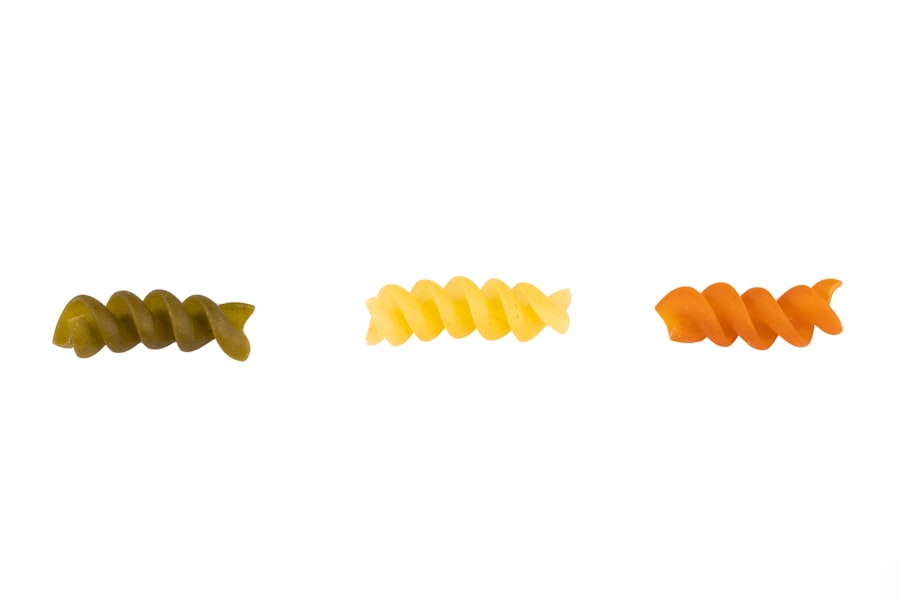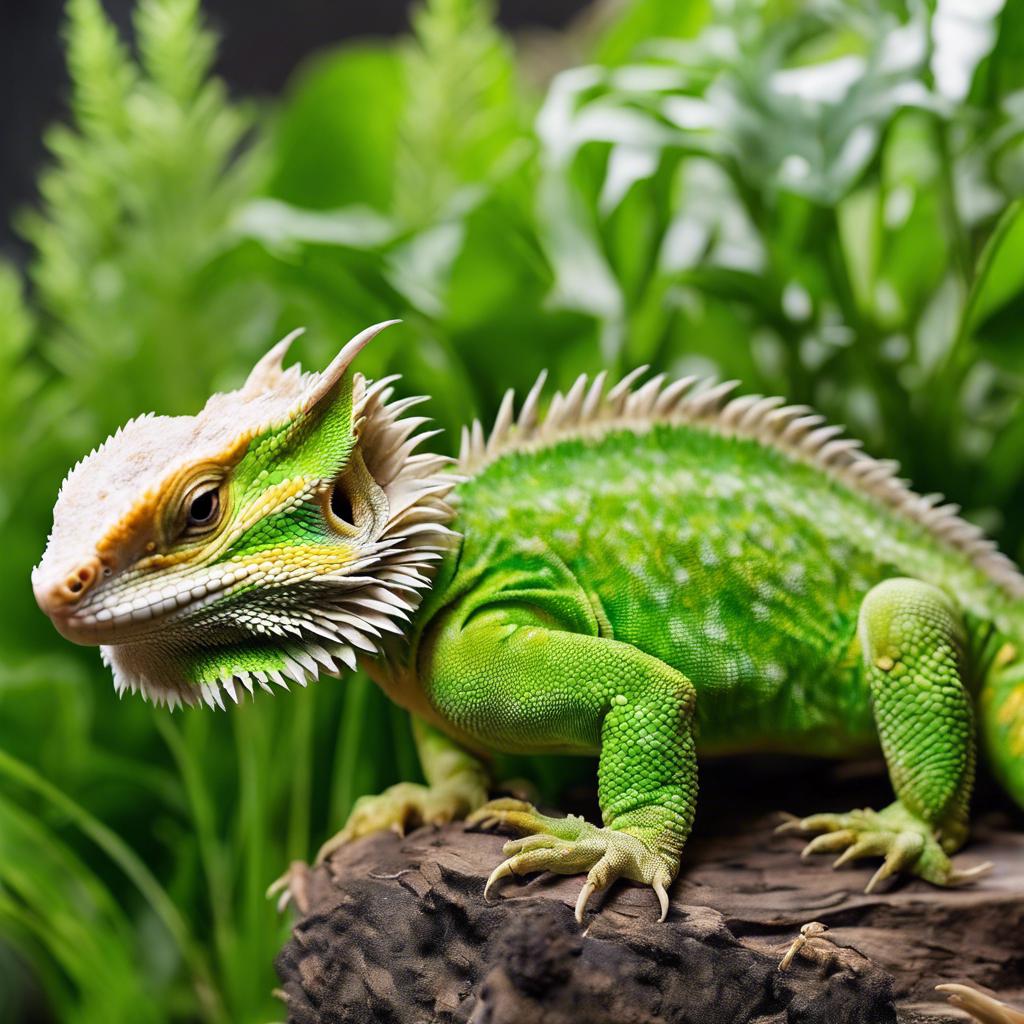Bearded dragons are popular reptile pets known for their unique appearance and docile nature. These reptiles require a specific diet to ensure their health and well-being. Understanding their nutritional needs is crucial for providing them with a balanced and nutritious diet.
Bearded dragons are omnivores, meaning they eat both plant matter and insects. Their diet should consist of a variety of foods to ensure they receive all the necessary nutrients. Providing a balanced diet is essential for their growth, development, and overall health.
Key Takeaways
- Bearded dragons require a balanced diet that includes greens and other foods.
- Providing greens in a bearded dragon's diet is important for their overall health and well-being.
- The top 5 greens for bearded dragons are collard greens, mustard greens, dandelion greens, turnip greens, and kale.
- Greens should be prepared and served in a way that is safe and easy for your bearded dragon to eat.
- Supplementing greens with other foods can be beneficial, but it's important to avoid certain foods and monitor portion control.
The Importance of Providing Greens in a Bearded Dragon's Diet
Greens play a vital role in a bearded dragon's diet. They provide essential vitamins, minerals, and fiber that are necessary for their overall health. Including greens in their diet helps prevent nutritional deficiencies and promotes proper digestion.
Greens are low in fat and high in fiber, making them an excellent choice for maintaining a healthy weight in bearded dragons. They also provide hydration, as they have a high water content. This is especially important for bearded dragons, as they are prone to dehydration.
Top 5 Greens for Bearded Dragons: Nutritional Value and Benefits
1. Collard Greens: Collard greens are an excellent source of calcium, which is crucial for bearded dragons' bone health. They also contain vitamins A and C, which support their immune system and promote healthy skin.
2. Mustard Greens: Mustard greens are rich in vitamin K, which is essential for blood clotting and bone health. They also provide vitamins A and C, as well as folate, which supports cell growth and development.
3. Dandelion Greens: Dandelion greens are packed with vitamins A, C, and K, as well as calcium and iron. They also have diuretic properties, which can help prevent urinary tract infections in bearded dragons.
4. Turnip Greens: Turnip greens are a good source of vitamins A, C, and K, as well as calcium and iron. They also contain antioxidants that help protect against cell damage.
5. Kale: Kale is a nutrient-dense green that provides vitamins A, C, and K, as well as calcium and iron. It also contains antioxidants and fiber, which promote healthy digestion.
How to Prepare and Serve Greens for Your Bearded Dragon
Before serving greens to your bearded dragon, it is important to wash them thoroughly to remove any dirt or pesticides. Chop the greens into small, bite-sized pieces to make it easier for your bearded dragon to eat.
It is recommended to serve the greens raw, as cooking can reduce their nutritional value. However, if your bearded dragon is not eating the greens, you can try lightly steaming them to make them more appealing.
Supplementing Greens with Other Foods: What to Include and Avoid
While greens should make up the majority of a bearded dragon's diet, it is important to supplement their diet with other foods to ensure they receive all the necessary nutrients.
Insects such as crickets, mealworms, and dubia roaches are a great source of protein for bearded dragons. They should be dusted with a calcium supplement before feeding to provide additional calcium.
Fruits can also be included in a bearded dragon's diet but should be given in moderation due to their high sugar content. Some safe fruits for bearded dragons include berries, melons, and apples.
It is important to avoid feeding bearded dragons foods that are toxic or harmful to them. This includes foods such as avocado, rhubarb, and onions. Additionally, avoid feeding them insects caught in the wild, as they may have been exposed to pesticides or parasites.
Common Health Issues Related to Bearded Dragon Diets: Prevention and Treatment

A poor diet can lead to various health issues in bearded dragons. Some common health issues related to their diet include metabolic bone disease, obesity, and vitamin deficiencies.
Metabolic bone disease occurs when bearded dragons do not receive enough calcium and vitamin D3 in their diet. This can lead to weak bones, deformities, and even death. Providing a balanced diet with adequate calcium and vitamin D3 is crucial for preventing this disease.
Obesity is another common health issue in bearded dragons. Feeding them too many high-fat foods or overfeeding can lead to weight gain and other health problems. It is important to monitor their food intake and provide a balanced diet to prevent obesity.
Vitamin deficiencies can occur if bearded dragons do not receive a variety of foods in their diet. This can lead to various health issues, including weakened immune system, poor growth, and reproductive problems. Providing a diverse diet that includes a variety of greens, insects, and fruits can help prevent vitamin deficiencies.
Signs of Nutritional Deficiencies in Bearded Dragons: How to Recognize and Address Them
It is important to be able to recognize the signs of nutritional deficiencies in bearded dragons so that they can be addressed promptly. Some common signs of nutritional deficiencies include:
– Weakness or lethargy
– Poor appetite
– Weight loss
– Soft or deformed bones
– Swollen joints
– Abnormal shedding
If you notice any of these signs in your bearded dragon, it is important to consult a veterinarian who specializes in reptiles. They can provide guidance on how to address the nutritional deficiency and prevent further health issues.
Feeding Frequency and Portion Control: Maintaining a Healthy Balance for Your Bearded Dragon
Feeding frequency and portion control are important factors in maintaining a healthy balance in a bearded dragon's diet. The frequency of feeding depends on the age and size of the bearded dragon.
Young bearded dragons should be fed more frequently, typically two to three times a day. As they grow older, the frequency can be reduced to once a day or every other day.
Portion control is also important to prevent overfeeding and obesity. Bearded dragons should be fed an amount of food that is approximately the size of their head. This ensures they receive enough nutrients without overeating.
Adjusting Your Bearded Dragon's Diet According to Age, Activity Level, and Other Factors
As bearded dragons grow and their activity level changes, their diet may need to be adjusted accordingly. Young bearded dragons require more protein and calcium for growth, while adult bearded dragons may require less protein and more fiber.
The activity level of a bearded dragon can also affect their diet. More active bearded dragons may require additional protein to support their energy needs.
Other factors such as pregnancy or illness may also require adjustments to a bearded dragon's diet. It is important to monitor their health and consult a veterinarian if any changes need to be made.
Providing Optimal Nutrition for Your Bearded Dragon's Health and Well-being
Providing a balanced and nutritious diet is crucial for the health and well-being of bearded dragons. Greens play a vital role in their diet, providing essential vitamins, minerals, and fiber.
By including a variety of greens in their diet, supplementing with other foods, and monitoring their feeding frequency and portion control, you can ensure that your bearded dragon receives optimal nutrition.
It is important to monitor their health and make adjustments to their diet as needed based on factors such as age, activity level, and other individual needs. By providing optimal nutrition, you can help your bearded dragon live a long and healthy life.
If you're looking for more information on the best greens for bearded dragons, you might find this article on Reptile Wizard quite helpful. It discusses the importance of providing a balanced diet for your bearded dragon and offers insights into specific greens that are safe and beneficial for them. Check it out here to ensure you're giving your bearded dragon the best possible care.
FAQs
What are the best greens for bearded dragons?
The best greens for bearded dragons include collard greens, mustard greens, turnip greens, dandelion greens, and kale.
Why are these greens good for bearded dragons?
These greens are good for bearded dragons because they are high in calcium, fiber, and other essential nutrients that help maintain their health.
Can bearded dragons eat other types of greens?
Yes, bearded dragons can eat other types of greens such as bok choy, endive, and escarole. However, some greens like spinach and lettuce should be avoided as they contain high levels of oxalates which can bind to calcium and prevent its absorption.
How should I prepare the greens for my bearded dragon?
The greens should be washed thoroughly and chopped into small pieces before feeding them to your bearded dragon. It is also recommended to lightly steam or blanch the greens to make them easier to digest.
How often should I feed my bearded dragon greens?
Bearded dragons should be fed greens daily as part of their diet. The amount of greens they need depends on their age and size, but generally, they should make up about 20-30% of their diet.
Can bearded dragons eat fruits?
Yes, bearded dragons can eat fruits, but they should be given in moderation as they are high in sugar. Good fruits to feed your bearded dragon include berries, apples, and melons. Avoid giving them citrus fruits as they can cause digestive problems.

